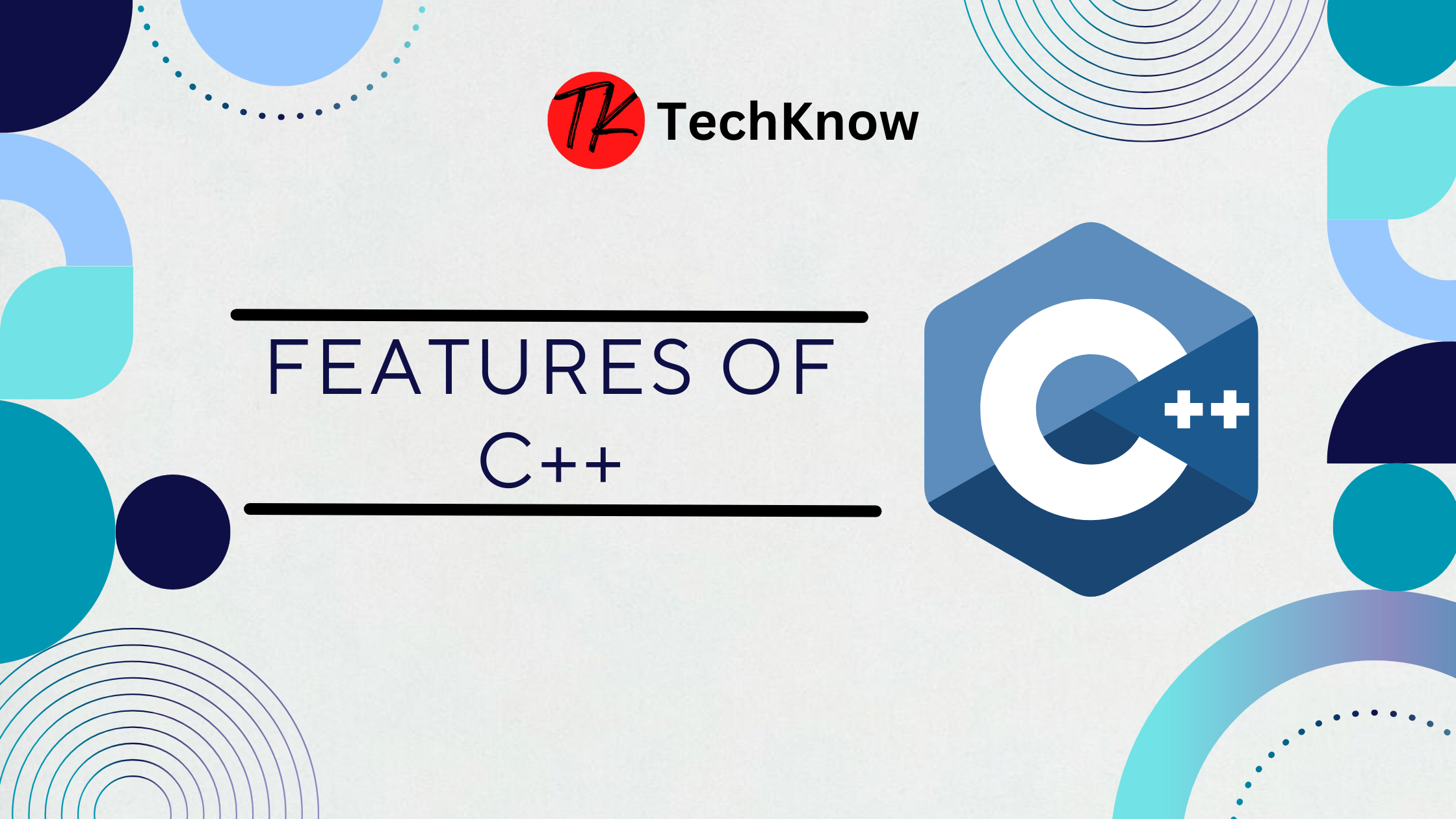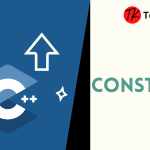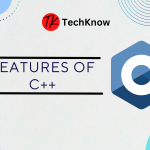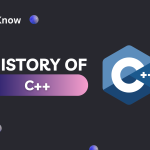For many years, the foundation of numerous software systems has been C++, a flexible and potent programming language. C++ is well-known for combining high-level and low-level programming features, giving programmers the freedom to construct sophisticated and effective programs. We’ll look at a few of the key components that make C++ a popular language for system programming, creating video games, creating real-time simulations, and more in this blog.
Table of Contents
1. Object-Oriented Programming (OOP) in C++:
One of the forerunners of object-oriented programming, which represents real-world entities as objects, is C++. In C++, the essential elements of OOP are:
- Objects and Classes: Classes act as building blocks for objects, encapsulating functions (methods) and data (attributes). This makes code modular and maintenance simpler.
- Inheritance: C++ allows for inheritance, which lets a class (child) take on traits and characteristics from another class (parent). This encourages the program’s hierarchical structure to be created and the reuse of code.
- Polymorphism: C++ is known for its polymorphic operators and functions, which can be used in different ways depending on the situation. Polymorphism is accomplished through function overloading, operator overloading, and virtual functions, which allow the same code to operate on multiple data types.
- Encapsulation: C++ promotes data hiding through access specifiers (public, private, protected), ensuring that internal object details are shielded from the outside world.
- Abstraction: Abstraction makes working with things easier by revealing only the aspects that are absolutely necessary and concealing intricate implementation details.
2. Memory Management:
Explicit control over memory allocation and deallocation is a powerful (but potentially harmful) feature of C++ when used improperly. C++ has two main features that help with memory management:
- Pointers: In C++, pointers provide direct access to memory locations, facilitating the construction of intricate data structures like linked lists, the efficient manipulation of arrays and strings, and dynamic memory allocation.
- Dynamic Memory Allocation: The ‘
new‘ and ‘delete‘ operators in C++ provide a way to allocate memory on the heap at runtime, giving the programmer control over how and when memory is used.
3. Low-Level Manipulation:
C++ is often praised for its low-level capabilities, which are particularly useful in system programming and developing performance-critical applications. These features include:
- Bitwise Operators: C++ allows direct manipulation of bits within a byte, essential for tasks that require optimized memory usage, such as embedded systems and graphics programming.
- Inline Assembly: With C++’s support for inline assembly, programmers can write assembly code directly within C++ applications. This is helpful for accessing processor-specific functionality, optimising performance, and manipulating hardware.
4. Standard Template Library (STL):
The Standard Template Library (STL) is one of C++’s most powerful features, offering a rich set of template-based data structures and algorithms. The key components of STL are:
- Containers: STL offers a variety of containers for managing object collections, including vectors, lists, queues, stacks, and maps. The performance and usability of these containers have been greatly enhanced.
- Iterators: An STL container’s elements can be traversed using iterators. Regardless of the type of container, they offer a consistent interface for accessing container elements.
- Algorithms: STL includes a plethora of algorithms for searching, sorting, counting, and manipulating data in containers, all optimized for performance and designed to work seamlessly with STL containers.
Learn on Youtube:
Features of C++
5. Templates and Generic Programming:
Templates are a cornerstone of C++ that enable generic programming, where functions and classes operate with any data type. This feature allows:
- Function Templates: Use function templates to define functions that can handle any kind of data. Code maintainability is improved and duplication is decreased as a result.
- Class Templates: Class templates, like function templates, allow C++ code to be more flexible and reusable by allowing classes to be created that can handle any sort of data.
- Template Specialization: In cases where a specific implementation is needed for a particular data type, template specialization allows for the customization of function or class templates.
6. Exception Handling:
Strong tools for managing runtime problems through exceptions are provided by C++, allowing programmers to create code that is more dependable and secure. Key components of managing exceptions in C++ are:
- try, catch, throw: These keywords work together to catch exceptions (runtime errors) and handle them gracefully, preventing the program from crashing unexpectedly.
- Custom Exceptions: C++ allows the creation of custom exception classes, which can be tailored to specific error conditions within an application.
7. Multi-Paradigm Language:
C++ supports multiple programming paradigms beyond object-oriented programming, including:
- Procedural programming: C++ keeps the capabilities of C, enabling programmers to create functions that work with data by concentrating on a sequential set of instructions.
- Functional programming: Functions can be thought of as first-class citizens thanks to C++’s support for features like lambda expressions and function pointers.
- Generic Programming: Through templates, C++ enables the creation of algorithms and data structures that work with any data type, enhancing code flexibility and reuse.
8. Portability and Performance:
C++ is renowned for its effectiveness and speed. It is a well-liked option for high-performance applications because of its direct hardware resource manipulation capabilities. Additionally, C++ is portable, which means that programs written in it may be produced and executed with little to no changes across a range of systems.
9. Concurrency Support:
With the increasing need for parallel processing, C++ has evolved to include robust support for multithreading and concurrency:
- Threads: C++ has a built-in library for the creation and management of threads, enabling programmers to carry out several tasks at once.
- Mutexes and Locks: C++ provides mutexes, locks, and condition variables to ensure thread-safe operations and prevent race situations in multithreaded programs.
10. Rich Ecosystem and Community Support
A large community of libraries, tools, and frameworks enhances the capabilities of C++. Because of the vibrant and ongoing contributions from the C++ community, the language is kept powerful and relevant in the context of contemporary software engineering.
Conclusion:
When it comes to high performance, versatility in complicated system design, and fine-grained control over system resources, C++ is the preferred language among developers. Its extensive feature set, which includes low-level manipulation abilities and object-oriented concepts, making it appropriate for a variety of applications, including operating systems, games, financial systems, and more. C++ is still an essential tool in the toolbox of programmers because it can grow with the times and yet meet new problems while retaining its fundamental advantages.
Learn:
Introduction to C++
History of C++










